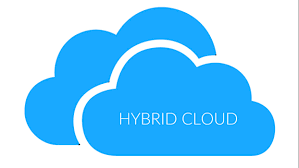Microsoft and the Blockchain

In this series of articles we'll cover various aspects of Microsoft's move to embrace blockchain technologies
Part 1 - Microsoft, the Blockchain & Trust
Microsoft seems to have taken note of one of the interesting advantages of the blockchain in a business setting, that being that the "distributed ledger", with its immutable records, can significantly lower the "Cost of Trust" during business transactions.
Consider that currently, trust is largely reputation based, and this reputation can be costly to develop and maintain. Companies depend largely on expensive advertising campaigns to promote feelings of trust in the consumer, costs which are then passed on to the consumer in the form of higher prices, smaller packaging and portion sizes, and myriad other ways.
Businesses rely heavily on reputation when selecting partners, and the trust is built during transaction when the partner lives up to the reputation.
Blockchain however can significantly reduce the cost and complexity of building this trust in several ways, through the distributed system of verifications which make cheating the system extremely difficult.
For some real world examples, consider supply chain and procurement, where the origin of materials and products, as well as each step in the transit process can be recorded in the blockchain for everyone to look-up and verify. Blockchain provides here an efficient and cost effective solution for tracking and inventory.
Financial services will likely find the most uses for blockchain technologies, not only for the ease and security of transactions, but also the immutable records that simplify compliance and audits.
Here we see examples where blockchain and distributed ledger solutions provide the basis for trust between all parties to the transaction, without these parties necessarily having ever met or spoken to one another. In fact, these technologies allow for trust during transactions where total anonymity is preserved, which is often one of blockchain's strongest and most desirable attributes.
In the next article we'll look at Microsoft Azure and how they have integrated blockchain services from Lisk to provide BaaS (Blockchain as a Service)
I hope you have enjoyed this article, and thank you for reading. Bye for now till next time!